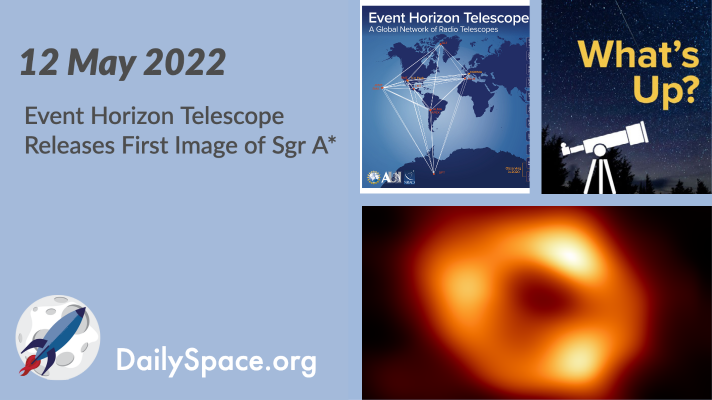
May 13, 2022 | Daily Space, Milky Way, Observatories, Sky Watching, Supermassive Black Holes
In an early morning announcement, the Event Horizon Telescope collaboration finally revealed their first image of Sgr A*, the black hole at the center of the Milky Way galaxy. We have a special episode entirely about this amazing new image and the science behind it. And this week’s What’s Up is a total lunar eclipse.
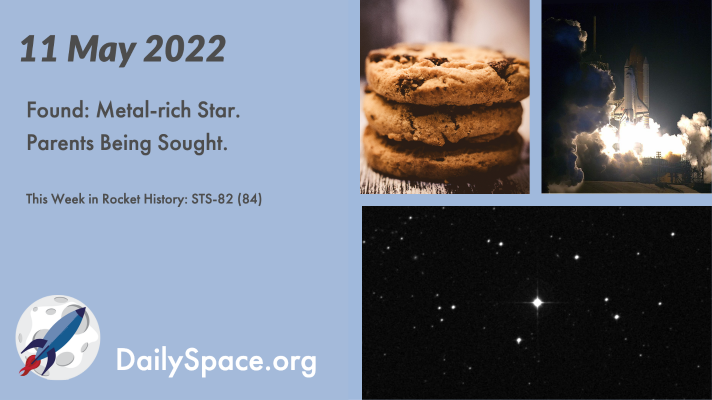
May 12, 2022 | Daily Space, Earth, JWST, Mars, Physics, Random Space Fact, Science, Space History, Spacecraft, Stars, The Sun
A ninth-magnitude star in our neighborhood of the Milky Way has been found to contain 65 different elements, including large proportions of heavier elements like gold. This star required either a supernova or a neutron star merger to form. Plus, another solar flare, a strong marsquake, cosmic rays, cookies, and this week in rocket history, we look back at STS-84.
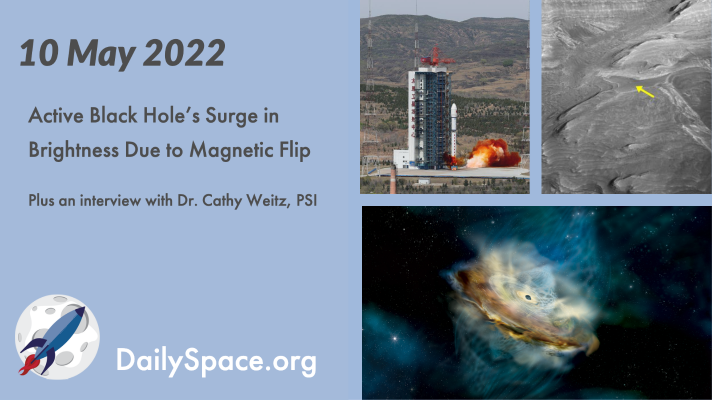
May 11, 2022 | Active Galaxies, Asteroids, Citizen Science, Daily Space, Galaxies, Guest Interview, Mars, Perseverance, Rockets, Space China, Spacecraft, SpaceX, Starlink, Supermassive Black Holes
A luminous black hole already classified as an active galactic nucleus brightened suddenly in recent ground and space observations, and the cause may be due to a sudden flip in the magnetic poles. Plus, community science, rockets, Ingenuity, and an interview with Dr. Cathy Weitz from Planetary Science Institute.
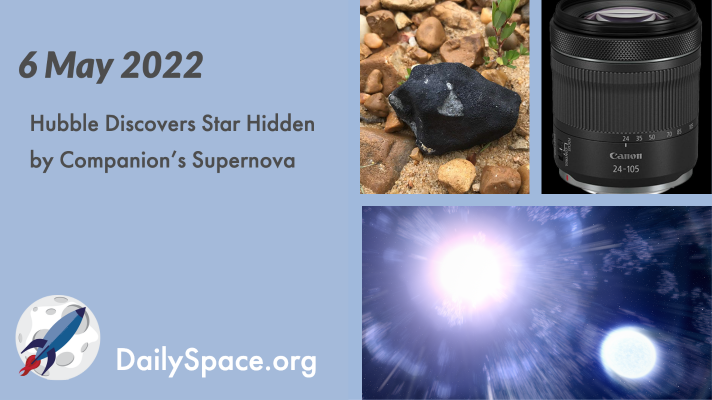
May 9, 2022 | Asteroids, Crewed Space, Daily Space, Exoplanets, Moon, Review, SpaceX, Stars, Supernovae, Titan
Data from the Hubble Space Telescope has determined that the newly discovered companion of a star that went supernova had its outer hydrogen layer siphoned off before the explosion. The results support the theory that massive stars generally form and evolve as binary systems. Plus, rocks from space, Crew-4 comes home, searching for life beyond Earth, and another Canon lens review.
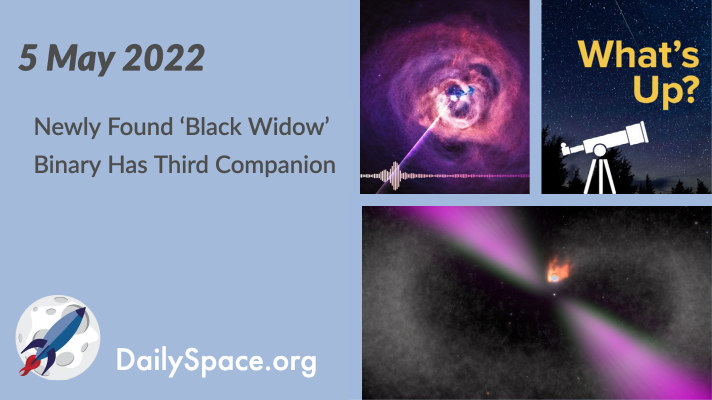
May 6, 2022 | Daily Space, Neutron Stars / Pulsars, Science, Sky Watching, Supermassive Black Holes, The Sun
The flash of a pulsar about 3,000 light-years from our solar system was caused by a ‘black widow’ binary consuming a smaller star. Intriguingly, a third companion star is orbiting the pair, which may have originated near the Milky Way’s center. Plus, the Sun is ramping up, Chandra releases more sonification videos, and this week’s What’s Up is all about occultations.
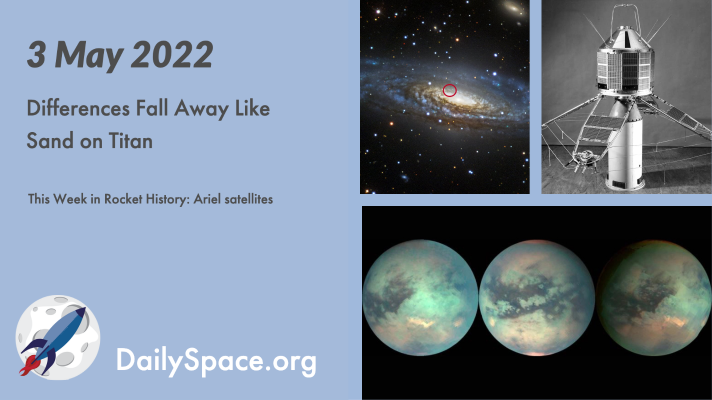
May 4, 2022 | Daily Space, Jupiter, Mars, Rocket Lab, Rockets, ROSCOSMOS, Space China, Space History, Spacecraft, SpaceX, Starlink, Supernovae, The Sun, Titan
Using spherical grains called ooids, found on Earth in shallow, tropical waters, scientists have found a possible mechanism for the formation of hydrocarbon sand on Titan. Plus, rocket launches, Jupiter and Mars, space explosions, and this week in rocket history, we look back at Britain’s Ariel satellite program.








 We record most shows live, on Twitch. Follow us today to get alerts when we go live.
We record most shows live, on Twitch. Follow us today to get alerts when we go live.